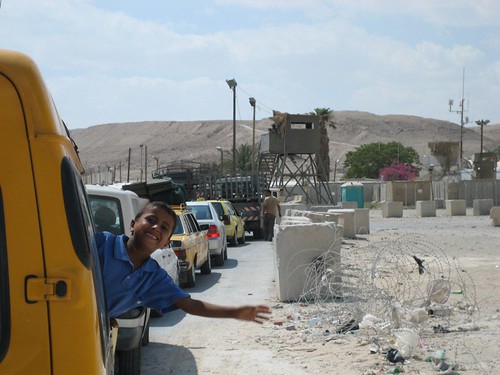Here are the pancake men working overtime an hour or so before the start of Ramadan. You eat these like a Hot Pocket, stuffed with sweet cheese or spiced nuts.
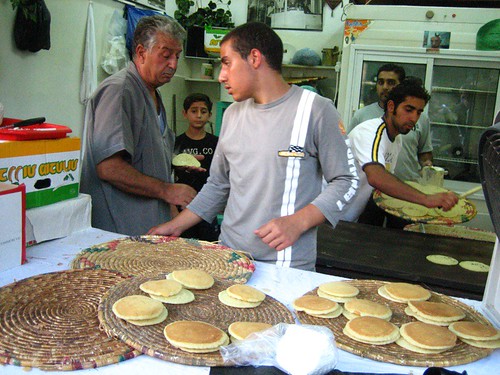
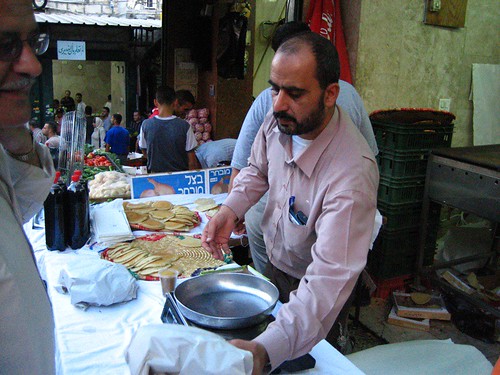
The boy on the left said Karin and I could take his picture, then chased after us, saying we couldn’t tell his dad and making a throat-cutting motion with his hand. You’re nine years old, you’re smoking, and it’s Ramadan. Yeah, you would get in trouble.
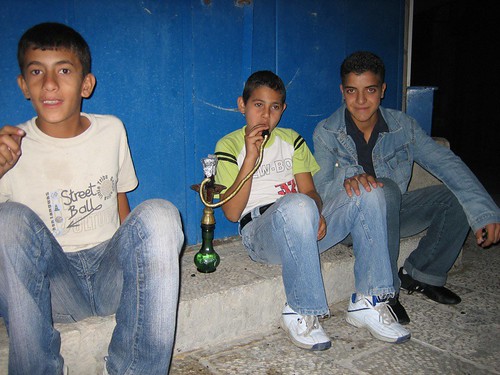
The pediatric department at the hospital is being renovated. The staff is calling the ward Bint al Jabal, after the town in southern Lebanon that the Israeli air force destroyed.
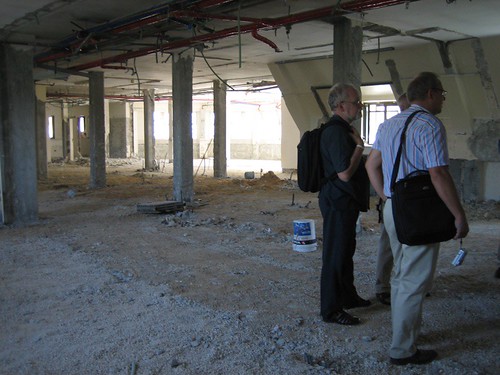
This here is Naji, one of the guards who works the main gate below my apartment:
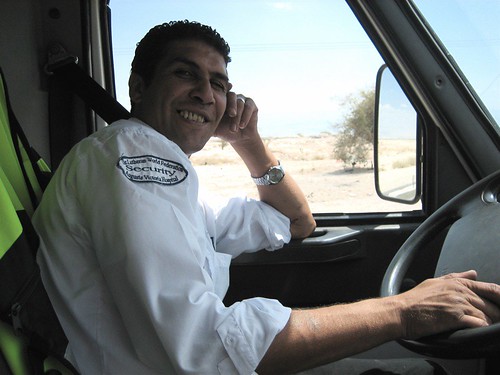
Along with being a nice guy, Naji was also the person holding my name on a piece of cardboard outside customs when I first arrived in Israel. I tried talking to him in Arabic on that first car ride from the airport to Jerusalem. When I drove with him to Jericho last week, the conversation went a little more easily. We were making a delivery of blankets and health kits to a boarding school in Jericho, and after arriving were invited in to the principal’s office for the requisite cup of Arabic coffee. We did the small talk, exchanged the delivery forms, and Naji checked his watch every couple of minutes.
“We should get back soon,” he said (twice), and we said our goodbyes.
Pulling out of the school’s parking lot, Naji turns onto the road in the opposite direction of Jerusalem. “Let’s go to my grandma’s!” he said.
Most of his family lives in Jericho, and Naji was practically out the door before he parked the van in the front yard. We were bustled inside and pushed onto the gold-velour slipcovered couches while his aunt fed us tea and water and fruit and honeyed dates. Naji’s grandfather counted prayer beads and spoke in simple Arabic to me, and Naji’s good-looking mulleted cousin sat with us when he wasn’t taking one of several cell phone calls in the other room. Naji translated the large portion of conversation I couldn’t follow.
“Now you can speak English, but in school when you studied you couldn’t speak any English!” his aunt teased.
Naji’s English is not bad and he’s fluent in Hebrew—both languages he taught himself while he was in prison during his teen years. Pretty much every Palestinian man you speak to over here has spent some amount of time in prison. A large portion were there for throwing a rock or being accused of throwing a rock at an Israeli tank or a soldier.
“Here it’s not a big thing to go to prison, because it’s everyone,” said Naji.
One last pic, waiting at the checkpoint to get out of Jericho. The vanful of cute kids ahead of us waved at me and then started making faces until Naji shook his finger at them.
